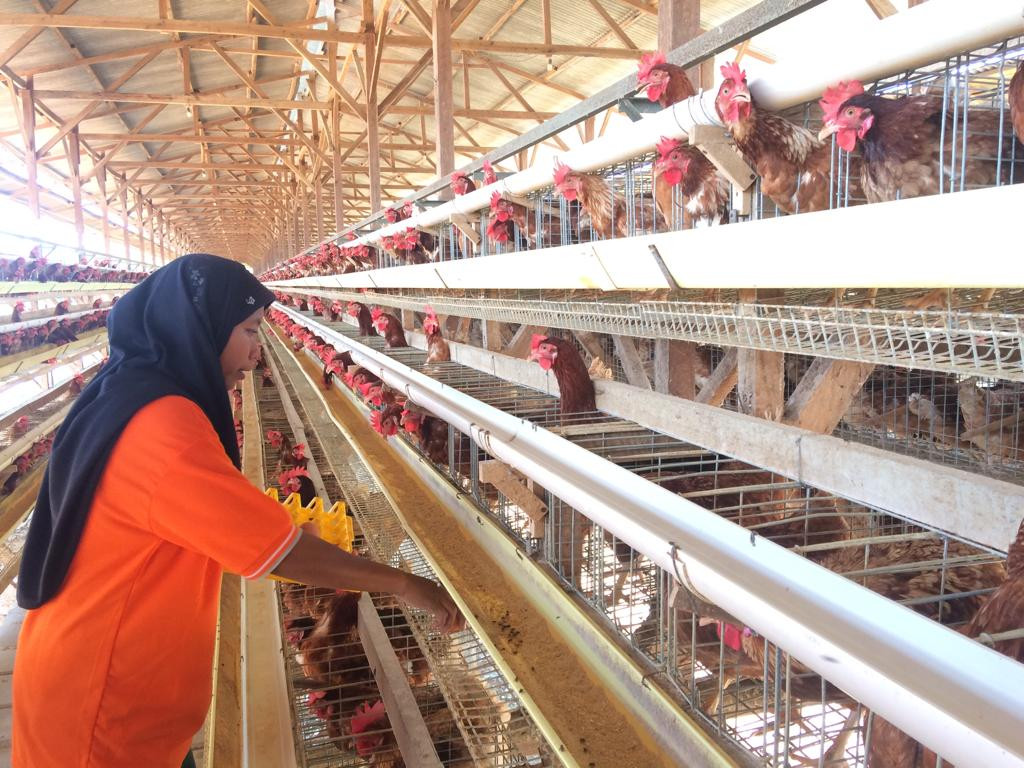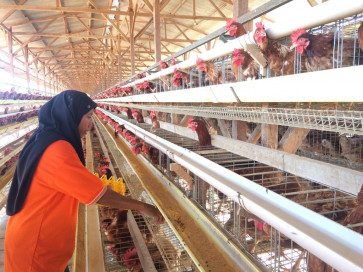Popular Reads
Top Results
Can't find what you're looking for?
View all search resultsPopular Reads
Top Results
Can't find what you're looking for?
View all search resultsFrom bank chatbots to egg hatcheries, popularity of AI soars among Indonesian businesses
Despite the advantageous use of AI in industry, the Center for Strategic and International Studies (CSIS) reports that only 7 percent of manufacturing companies in Indonesia has adopted AI technology this year.
Change text size
Gift Premium Articles
to Anyone
A
rtificial intelligence (AI) has been gaining popularity among Indonesian business sectors, which have been putting the technology to various uses, ranging from providing chatbot services to helping the egg-hatching process.
Publicly listed poultry company PT Japfa Comfeed Indonesia corporate IT head Lukas Djuanda said his company was using AI to optimize the performance of some of its business lines. In the poultry division, for instance, the company uses the advanced technology to help sort chicken eggs for hatching.
“We use AI to learn whether an egg has been fertilized or not so we can supply eggs with the same quality for our hatchery,” Lukas told a seminar attended by farming stakeholders in Jakarta on Wednesday.
The use of AI in business is not a new story in the country. Several major banks have employed their own chatbots powered by AI to help with standard and repetitive questions addressed to their call centers. State-owned lender Bank Rakyat Indonesia (BRI) has a chatbot named Sabrina while Bank Mandiri and Indonesia’s largest private lender Bank Central Asia (BCA) deploy Mita and Vira, respectively.
As AI-enabled automation increases, as many as 120 million workers from the world’s 12 largest economies, including Indonesia, may need to participate in reskilling programs in the next three years, according to a recent study released by IBM’s Institute for Business Value.
Other than using AI for its egg hatchery, Japfa is also developing an earthquake early-warning system in the birds’ cages that would notify the cage managers when problems occur, Lukas said. The company has to carefully monitor the condition of cages as poultry fowl, such as chickens, are sensitive to disasters and can easily become stressed when they sense signs of an approaching earthquake, which include temperature changes, Lukas said.
“When the disaster signs occur, the cages’ lighting system will respond to them and the system will send a message to the cage manager, and it can go to a higher level [of management],” Lukas said.


















